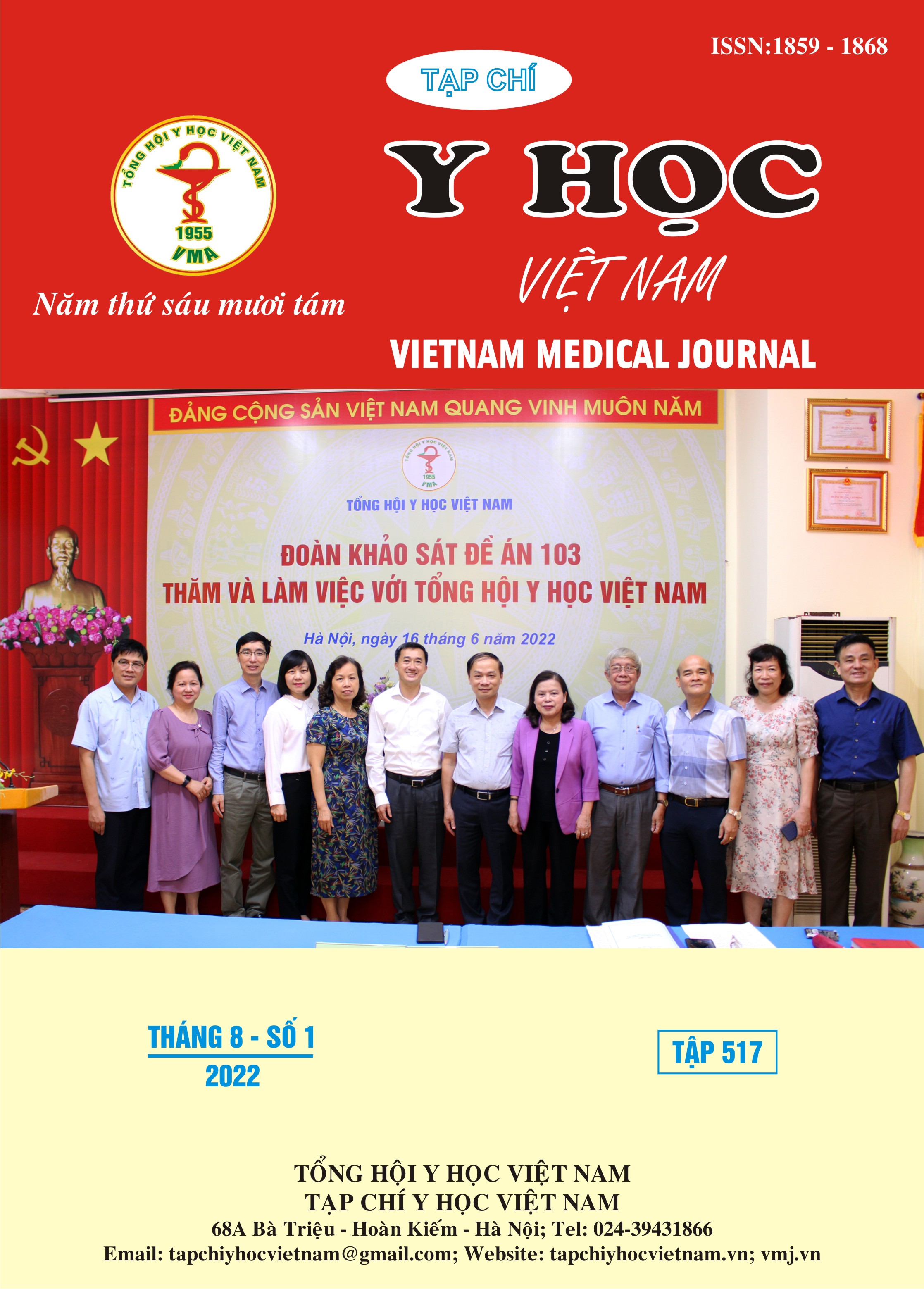TO EVALUATE THE TREATMENT OUTCOMES FOR PATIENTS WITH PLATINUM-RESISTANT RECURRENT EPITHELIAL OVARIAN CANCER WITH LIPOSOMAL DOXORUBICIN AT VIET NAM NATIONAL CANCER HOSPITAL
Main Article Content
Abstract
Objectives: To evaluate the treatment outcomes for patients with platinum-resistant recurrent epithelial ovarian cancer with liposomal doxorubicin and some adverse events the regimen. Patients and method: 30 patients with platinum-resistant recurrent epithelial ovarian cancer treated with liposomal doxorubicin at K Hospital from January 2018 to August 2021. Results: The initial stage of diagnosis is mainly stage III, and IV: 60%, 23.3%, respectively. All of patients with CA125 elevation at the time of progression, recurrence. 53.3% partial response disease, 40% stable disease, 6.7% progression disease, 93,3% of patients have clinical benefits. The response rate according to stage III, and IV were 50%, 28.5%, respectively. To the adverse events of liposomal doxorubicin: neutrophils, thrombocytopenia, mainly at grade 1, 2, no one had grade 3, 4. Hand-foot syndrome seen at grade 1, 2, vomiting, nausea mainly grade 1, no cases grade 3, 4.
Article Details
Keywords
platinum-resistant recurrent epithelial ovarian cancer
References
2. Gordon AN, Tonda M, Sun S, Rackoff W (2004). Long-term survival advantage for women treated with pegylated liposomal doxorubicin compared with topotecan in a phase 3 randomized study of recurrent and refractory epithelial ovarian cancer. Gynecol Oncol. 2004;95(1):1
3. David G. Mutch, Mauro Orlando, Tiana Goss 2007. Randomized pha III trial of Gemcitabien compared with Pegylated Liposomal Doxorubicin in patients with platinum-resistant ovarian cancer. J Clin Oncol 25: 2811-2818
4. Trần Bá Khuyến. Đánh giá hiệu quả điều trị bệnh ung thư buồng trứng tái phát di căn bằng pegylated liposomal doxorubicin. Luận văn thạc sỹ y khoa, Đại học Y Hà Nội, 2013
5. Herzog TJ, Vermorken JB, Pujade-Lauraine E, et al. Correlation between CA-125 serum level and response by RECIST in a phase III recurrent ovarian cancer study. Gynecol Oncol. 2011;122(2),350-355.


